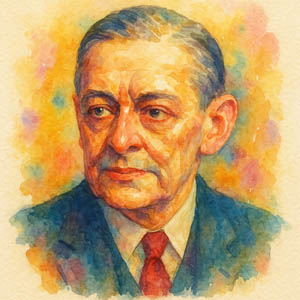 Poet Thomas Stearns Eliot (1888–1965) was born on this day in St. Louis, Missouri, and graduated from Harvard. He moved to England at the beginning of World War I, becoming a naturalized citizen in 1927.
Poet Thomas Stearns Eliot (1888–1965) was born on this day in St. Louis, Missouri, and graduated from Harvard. He moved to England at the beginning of World War I, becoming a naturalized citizen in 1927.
“No poet, no artist of any art, has his complete meaning alone,” he once said. “His significance, his appreciation is the appreciation of his relation to the dead poets and artists.”
Eliot is best known for his bleak, 433-line epic The Waste Land (1922), a poem that featured a collage of allusion and Jazz-Age images.
“This is the way the world ends / Not with a bang but a whimper,” Eliot wrote in The Hollow Man (1925).
With introspective hazel eyes that writer Virginia Woolf described as lively and youthful in a pale, heavy face, Eliot was a master of the fragmented narrative and understood the challenges of interpretation.
“The reader of a poem should take at least as much trouble as a barrister reading a decision on a complicated case,” he recommended. “Genuine poetry can communicate before it is understood.”
In looking at the desolation of post–World War I Europe, Eliot created a stark portrait. A genius of form, balance, and sound, during his lifetime he was called “the greatest living poet writing in English” and received the Nobel Prize for Literature and Britain's prestigious Order of Merit in 1948.
A master of renewal and exploration who sought to be a “poet who, out of intense and personal experience is able to express a general truth,” he once explained, “We shall not cease from exploration. And the end of all our exploring will be to arrive where we started and know the place for the first time.”
Named to the Top 100 Writers of the 20th Century, T. S. Eliot gathered fragments of thought into music and meaning. Linger gently… Each voice a bloom in the garden of literature.
We return to him still…
 Take a chance.✨💜
Take a chance.✨💜
